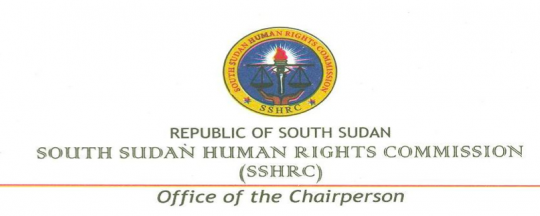The South Sudan Human Rights Commission has urged the government to allow freedom of speech, after security agents confiscated newspapers and threatened journalists in the capital city Juba.
Actions by the security service prompted the Editors Forum in Juba earlier this week to demand clarification from the government on whether censorship was its official policy or not.
Chairman of the Human Rights Commission, Lawrence Korbandy, on Friday said that the media must be allowed to facilitate free airing of different viewpoints, including on the issue of federalism.
In a report by the Catholic Radio Network, the human rights official is quoted as saying that the government should tolerate debate and different opinions.
He said censoring the debate was “unconstitutional, politically incorrect, socially intimidating and democratically a setback,” according to the Catholic radio.
Korbandy referred specifically to the confiscation of the Juba Monitor Newspaper on 2 July. He said that a citizen’s opinion on federalism falls within the fundamental right of freedom of opinion.
The government’s information minister Michael Makuei and presidential spokesman Ateny Wek this week denied adopting censorship as a formal policy, but within a day of their remarks security agents seized the Juba Monitor newspaper.
Late last year just before the December crisis, the Editors Forum decided to defy a government directive to require registration of all journalists, on the grounds that the order had not been made in writing, among other reasons.
The Minister of Information had openly suggested that the government would decide who was allowed to work as a journalist and who was not, a position rejected by a number of media houses.
Related:
S. Sudan main daily newspaper to shut down (10 June)
S. Sudan minister says slain Bor civilians were ‘intolerable’, ‘rebels’ (19 April)
South Sudan rights commission blames ‘ethnic massacres’ for spread of war (23 March)
Transcript: South Sudan Information Minister warns press (6 Nov. 2013)




